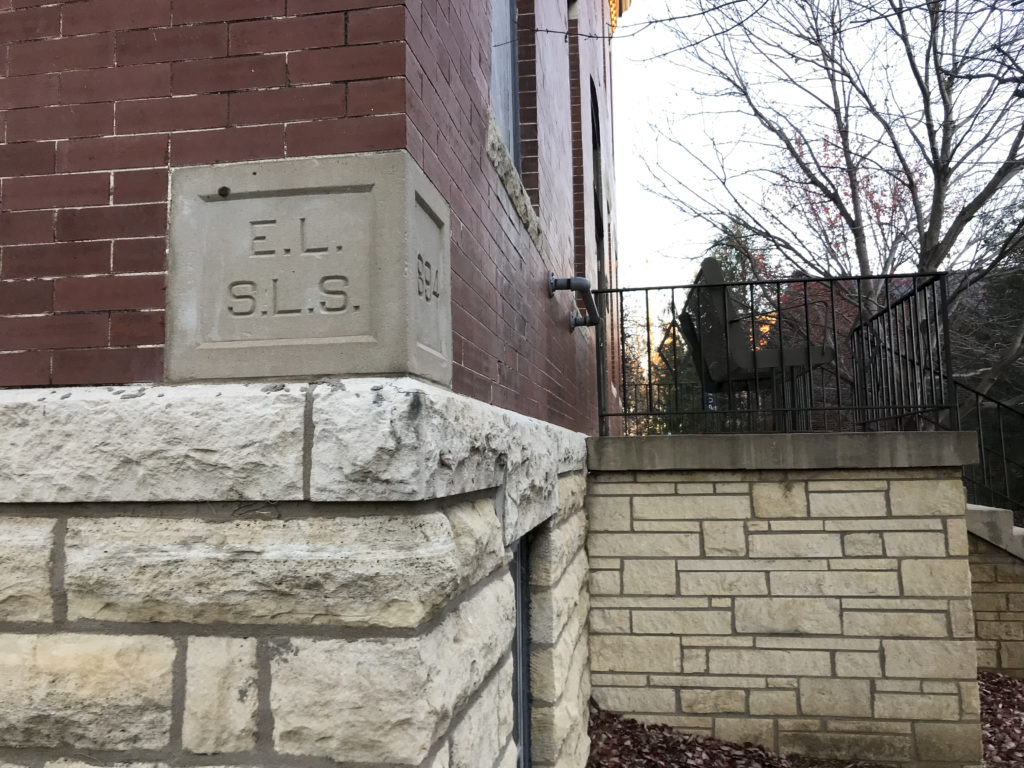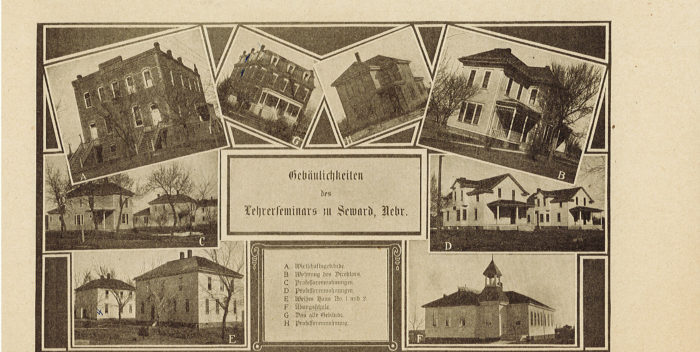‘Back to Our Roots’: Why Concordia Should Offer German Classes
A photo taken from a 1914 publication of Alma Mater, an informational newsletter for students, features the names of buildings on campus in German. Courtesy of Rehema Kavugha.
- By Kimberly Sleeper
Concordia University, Nebraska, a historically German-Lutheran university, should offer German language classes again.
The cornerstone of Founders Hall has inscribed E.L.S.L.S., which stands for Evangelische Lutherische Schullehrer Seminar, or Evangelical Lutheran Teacher Seminary. Concordia was founded by Lutheran leaders who spoke German. So why do we not offer German classes to students?

A brick on the southwest corner of Founder’s Hall reads E.L.S.L.S. Photo by Kim Sleeper, Managing Photo Editor.
Learning a foreign language is vital today.
There are scientifically proven cognitive benefits of knowing more than one language. There is an economic mandate for bilingual or multilingual employees in national security, business, social services, law, medicine, and teaching, among other fields.
Beyond practical benefits of being bilingual or multilingual, learning a foreign language introduces an array of enrichment and communication opportunities.
I began studying Spanish at Concordia; I started in the introductory course the first semester of my freshman year. I could not have anticipated the life-changing benefits of knowing a foreign language. A multitude of new music, books, movies, and even puns were opened up to me as I advanced in the Spanish language. Most importantly, I have been able to communicate with a new community; I am able to hear the stories of an entire population that is made silent by monolinguals who fear the American English language is threatened by the learning of foreign languages.
An untapped world of the history and culture of Concordia can be opened up if we simply offer classes of the heritage language of the University.

Pages from a 1914 publication of “Alma Matter” are written completely in German. Courtesy of Rehema Kavugha.
Heritage languages—a minority language that is spoken by a group of people at home or informally—are not well-preserved in the United States beyond a few generations of native speakers. Concordia not offering German classes, a heritage language for the first professors and students at the University, is an example of this.
Must the United States be a place where language diversity comes to die?
Until 1914, classes at Concordia were taught in German. The University was faced with anti-German sentiment during World War I and changed the official language to English.
One hundred years after World War I ended, and over 70 years after World War II, the consequences of such sentiments can be felt at Concordia with the absence of the German language.
We must preserve the history and culture of Concordia as we celebrate the diversity of the Body of Christ.










